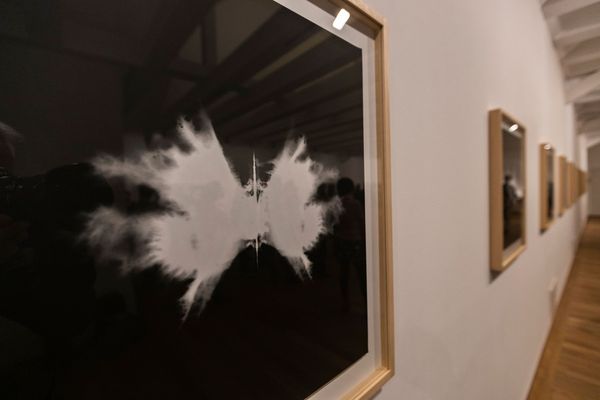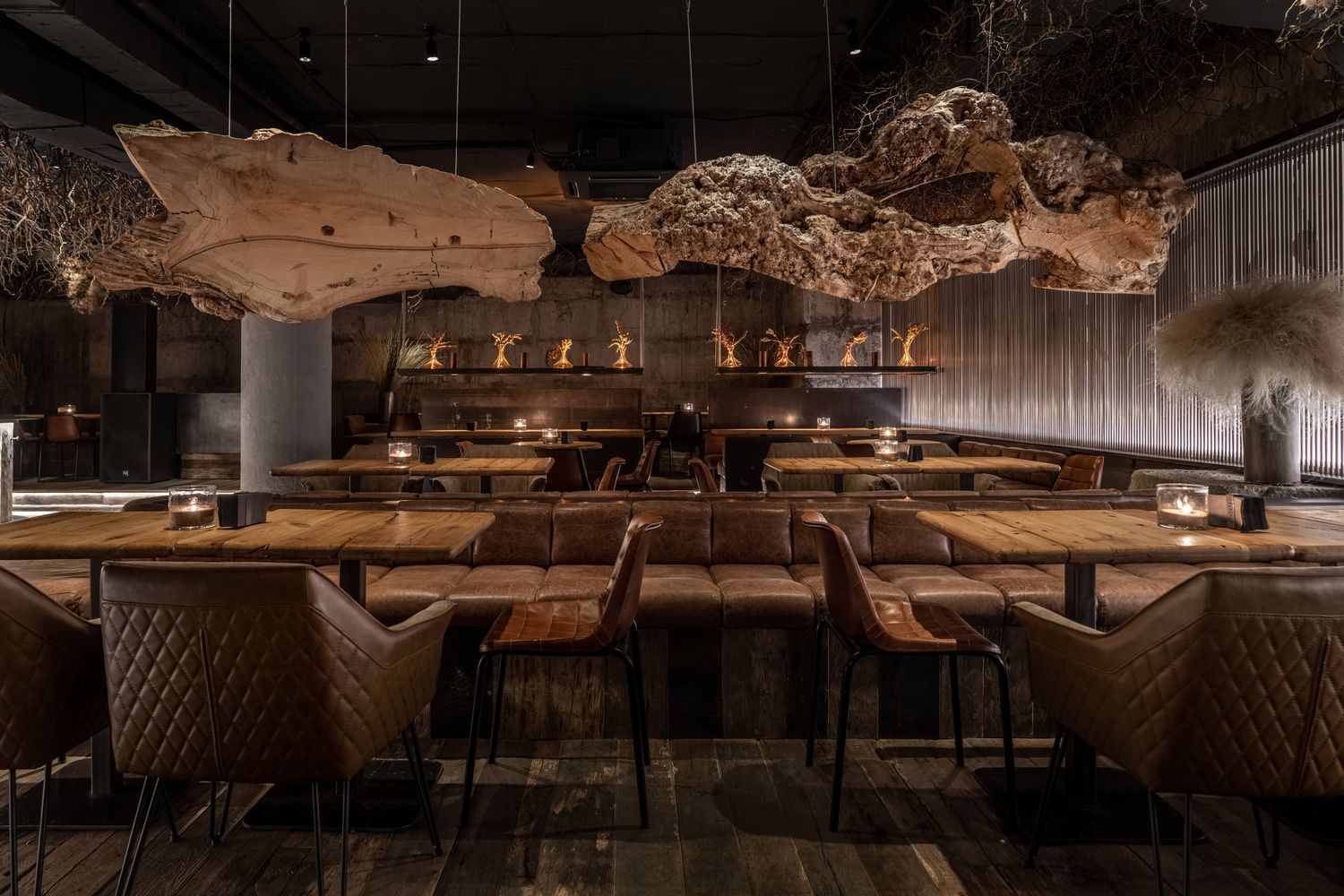Ukrainian interior design is just as prominent on the international scene as Ukrainian fashion. It’s hip, sophisticated, yet daring; it breaks up with minimalist trends but doesn’t go overboard. With a perfect sense of proportion, it straddles the line between exciting details and overall harmony. Though we can’t be sure of their current state, we made a bucket list of places we’d definitely revisit in Ukraine given the chance. Here comes the third episode!
Nightclub and flower shop in one | YOD Group
Deep Bar is a two-story venue in Dnipro city that unites bars with a florist and a tiny café. The bars include a smoking zone, a hookah zone, a partly opened kitchen, and a DJ place. The interior is dominated by earthy tones and natural materials: they used some recycled oak boards that were applied in another building 70 years ago. Above the bar, roots hang from the ceiling, conceptually linking the two levels of the venue: they symbolize the roots of the flowers from the flower shop on the first floor. “A flower cannot be without roots, as well as anything in this world has its reasons and consequences. Everything is connected, and every action has some roots,” said the interior designers.
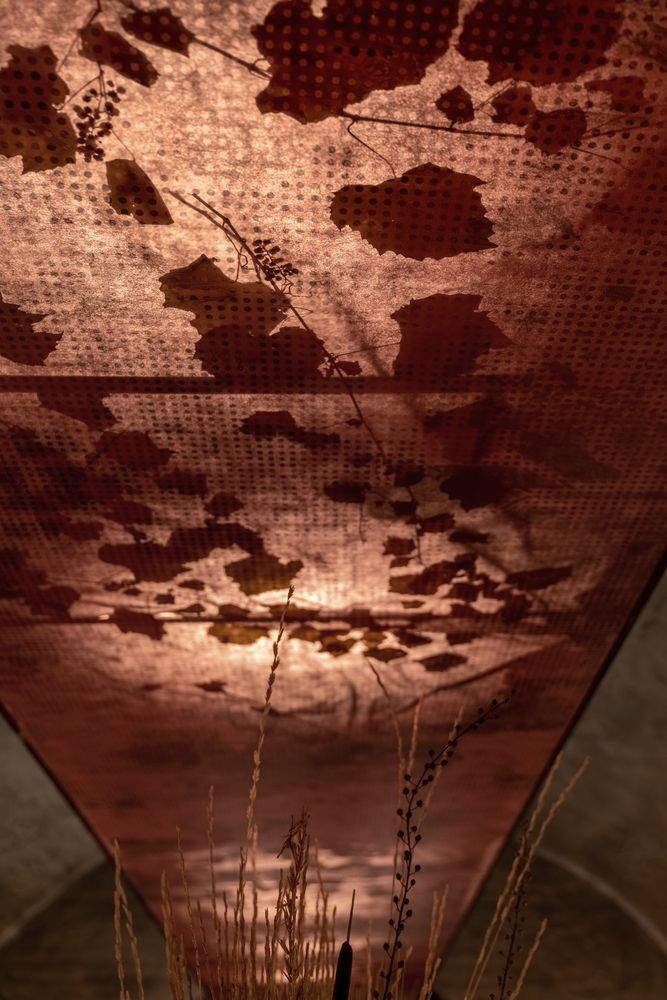
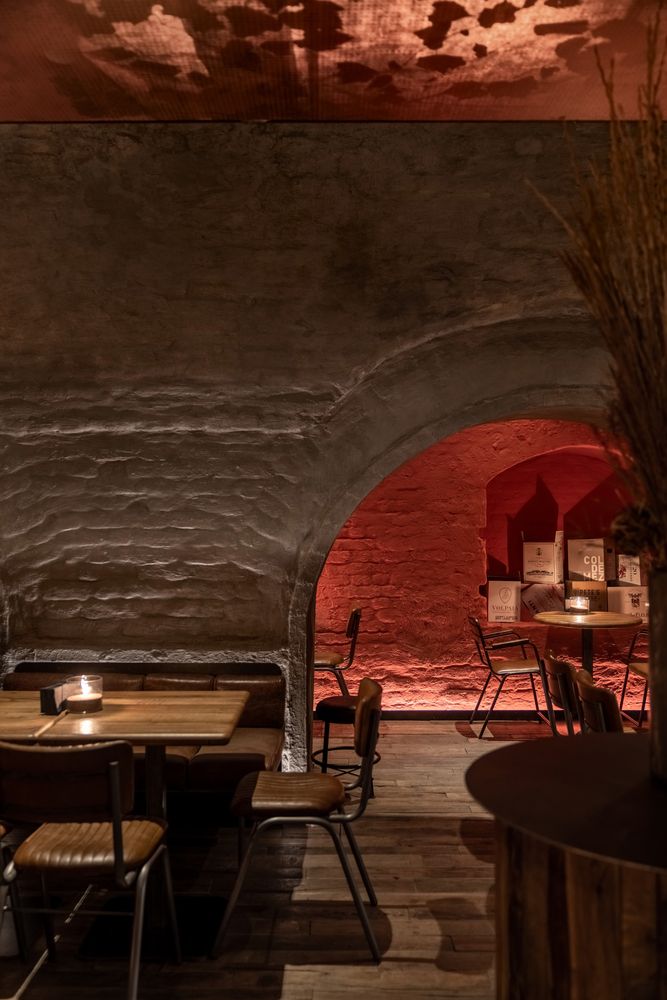
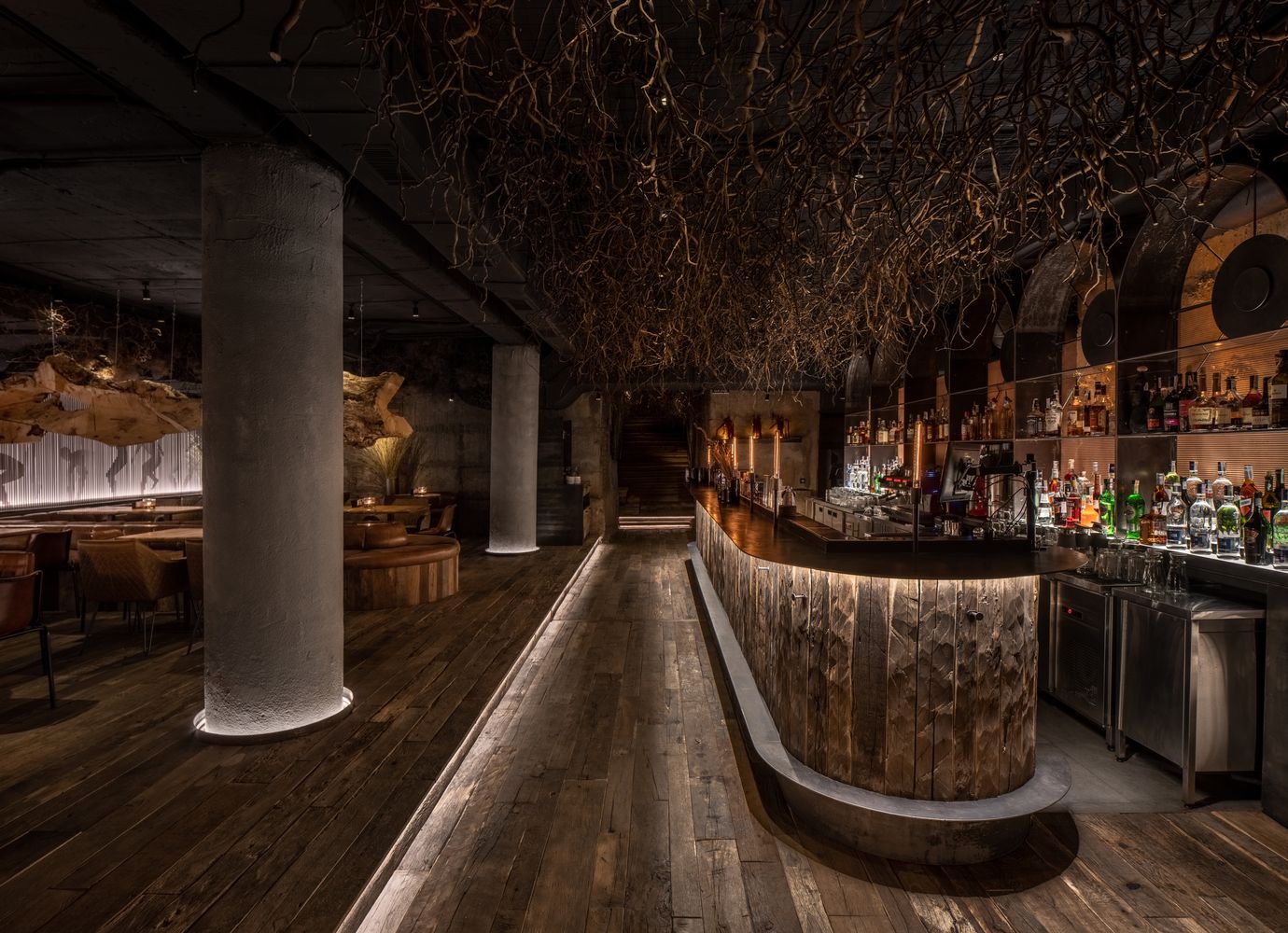
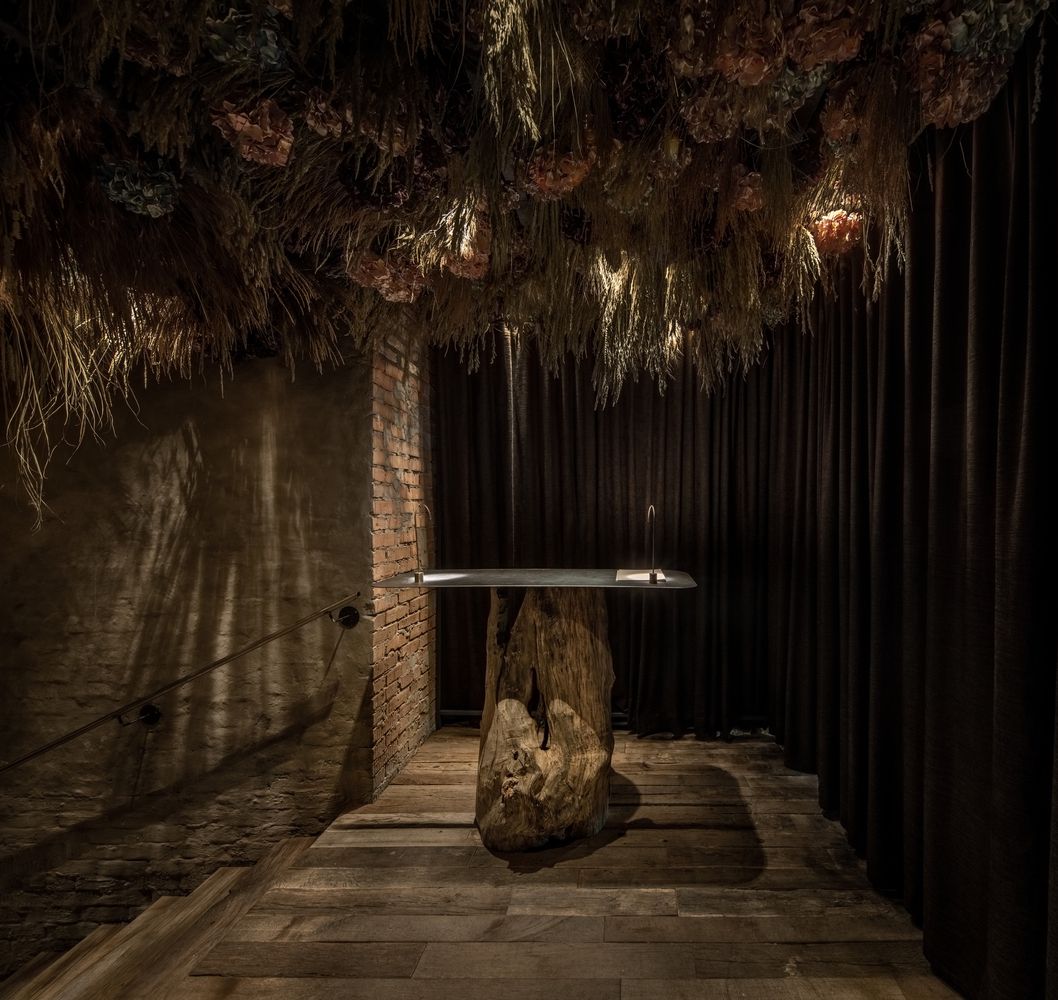
Barber shop in Odessa | Sivak & Partners
Odessa-based Sivak & Partners had just three months to design the 100 square meter interior of the KULT Barbershop, so they opted for a simple and clean solution. The only notable features of the decaying space were the curved ceiling and wooden floor. While they kept the vaulted ceiling, the wooden floor got a grey plaster finish. The space is dominated by industrial materials: stone, glass, steel and concrete-like plaster, all kept in grey tones. They’ve created an unobtrusive yet characteristic shop with a hair salon, tattoo parlor and beauty salon. Although no such style category is officially defined, the KULT Barbershop in Odessa would be best described as industrial sci-fi.
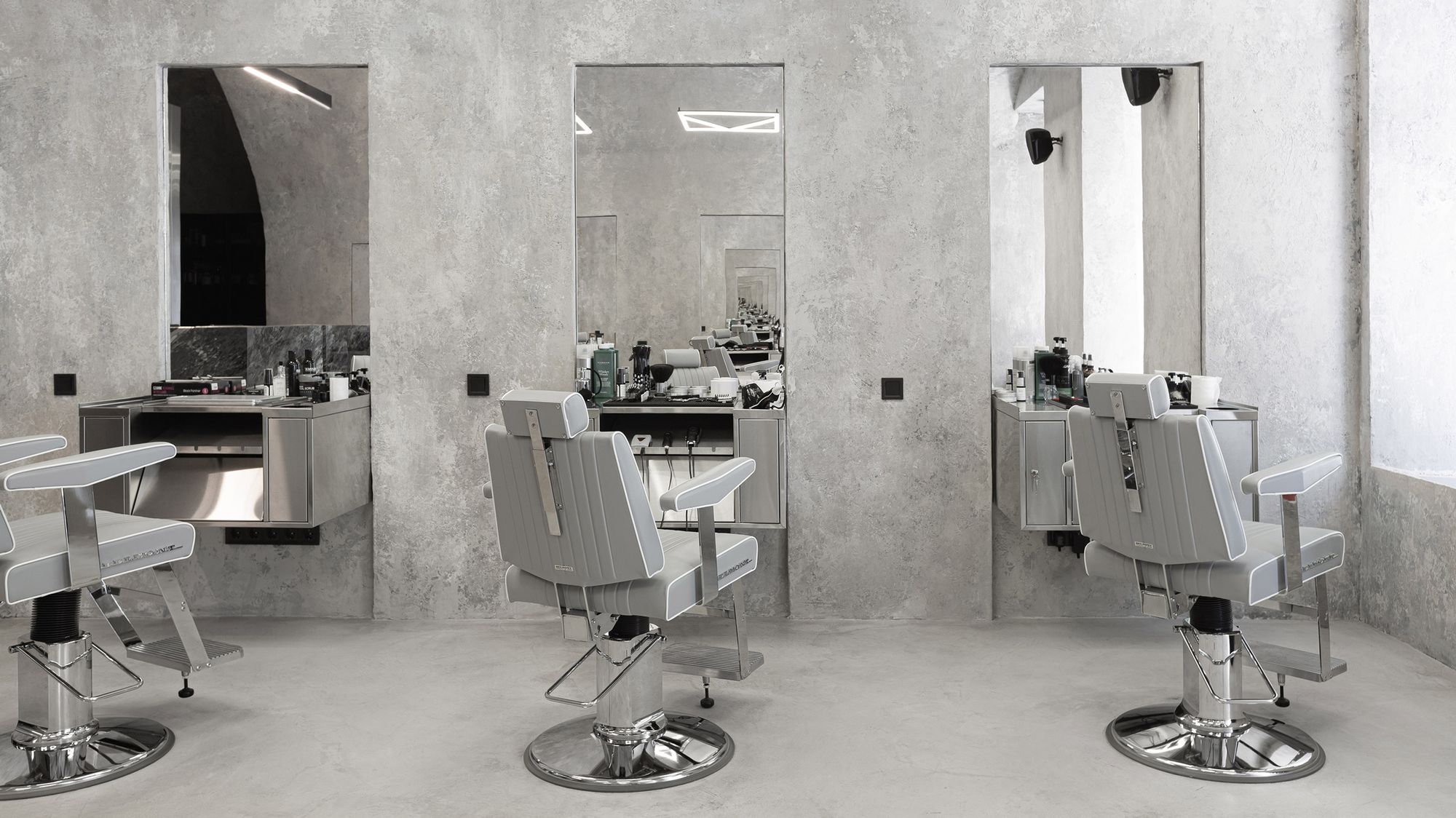
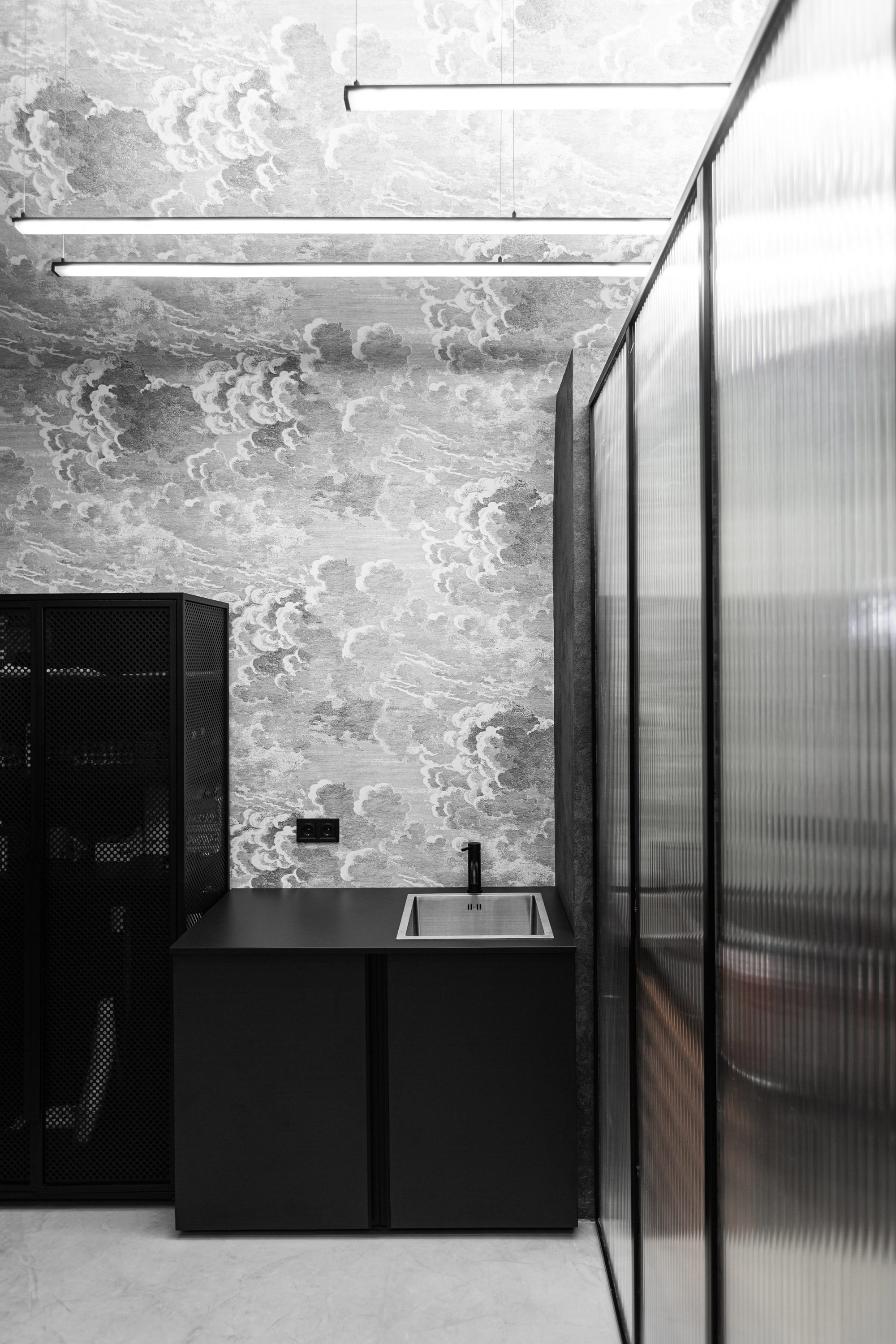
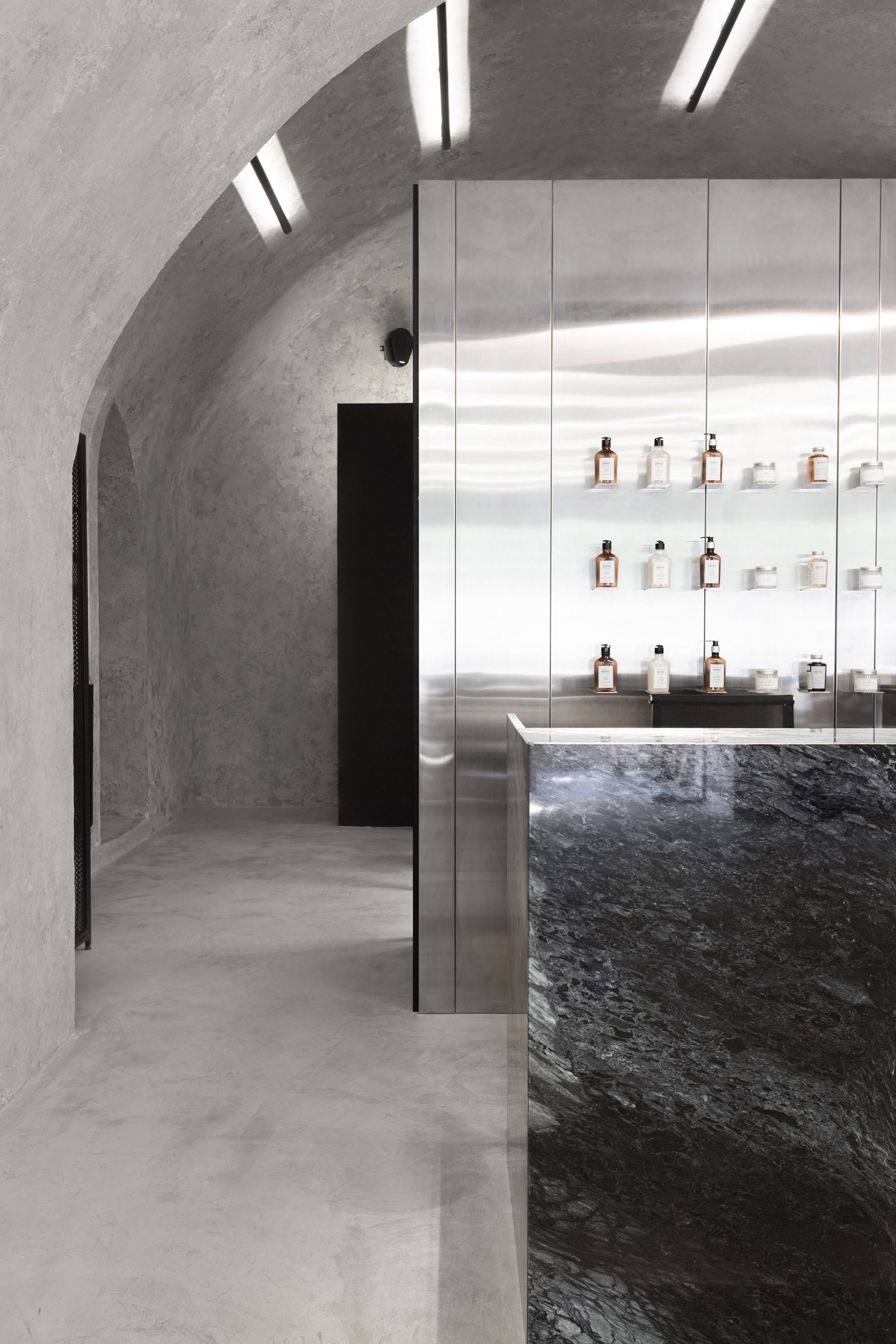
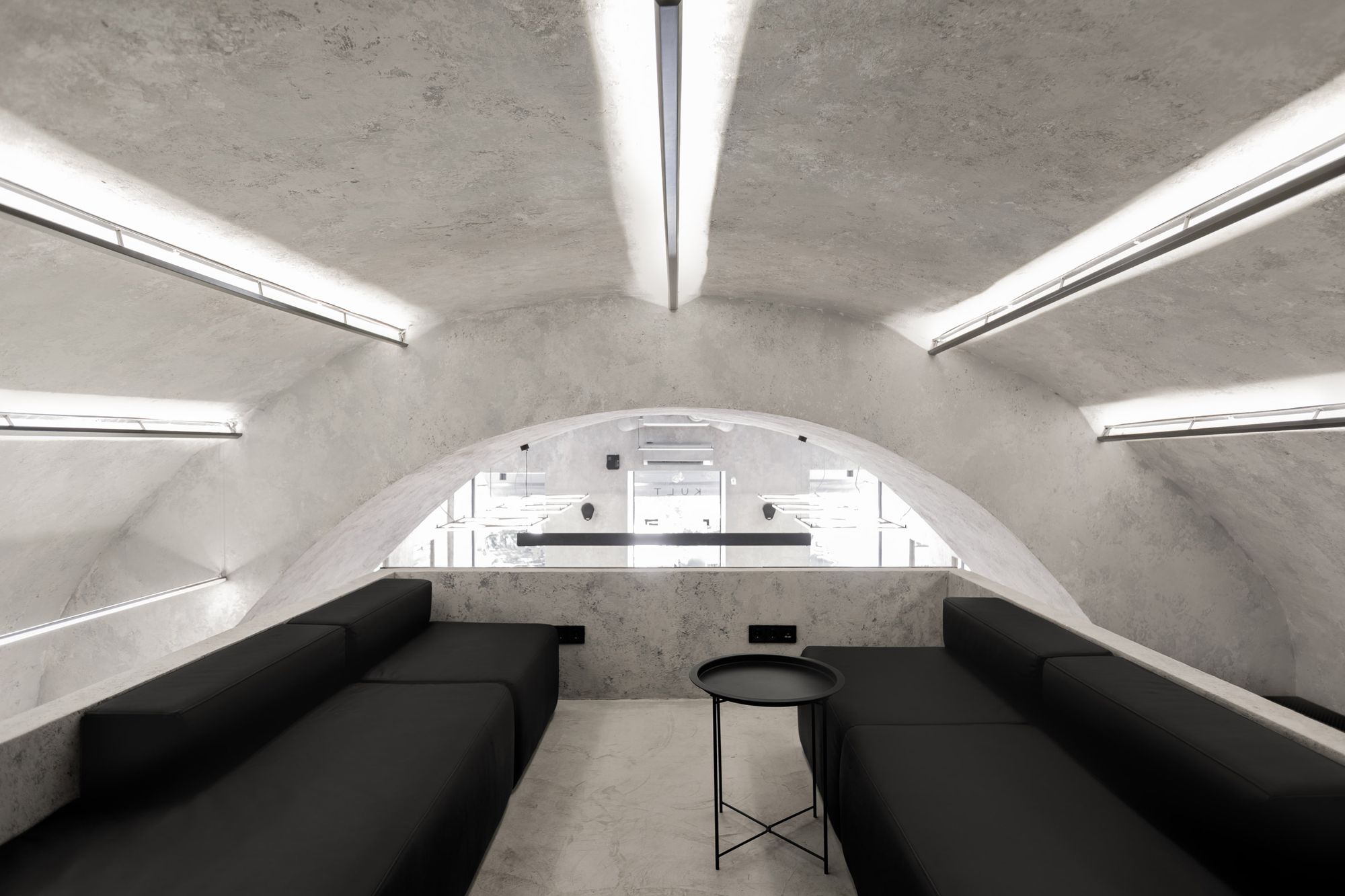
Vegetarian café in Kyiv | AKZ Architectura
The vegetarian café, Orang+Utan, is situated on an old Kyiv street populated with buildings from the Soviet era. The white-tiled interior is also a nod to Ukraine’s Soviet past when this one type of white tile could be seen everywhere, in hospitals, shops and swimming pools. The sterile vibe is further emphasized by the white plastic chairs and neon signage, while the black grout of the tiles, jungle corners and pink-painted fruit decorations ironically offset the atmosphere. “The idea was to create a place that would show costumers the idea behind Orang+Utan bar: the city is a jungle and people who live there are smart animals, they need a place to refill energy,” said the architects.
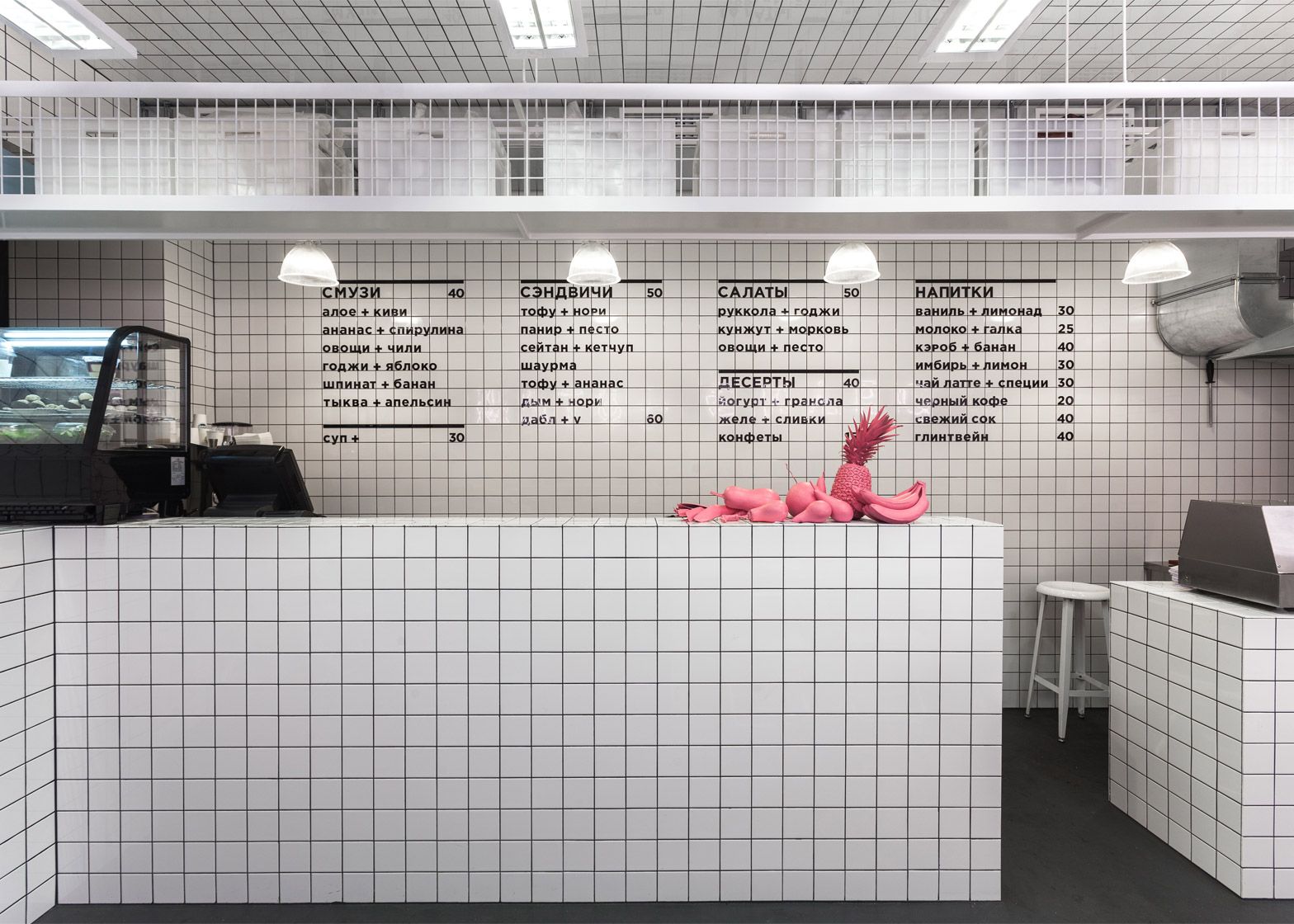
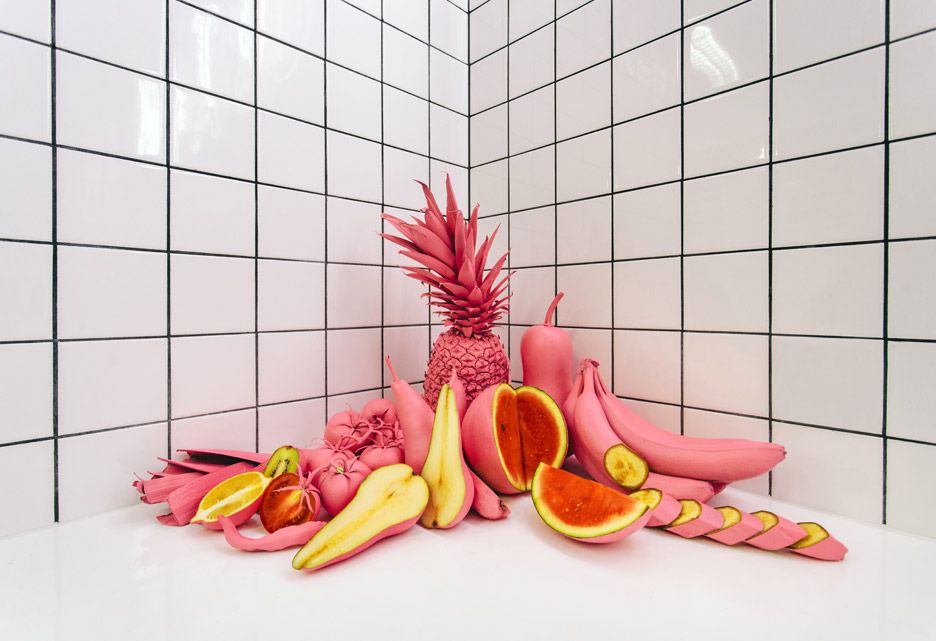
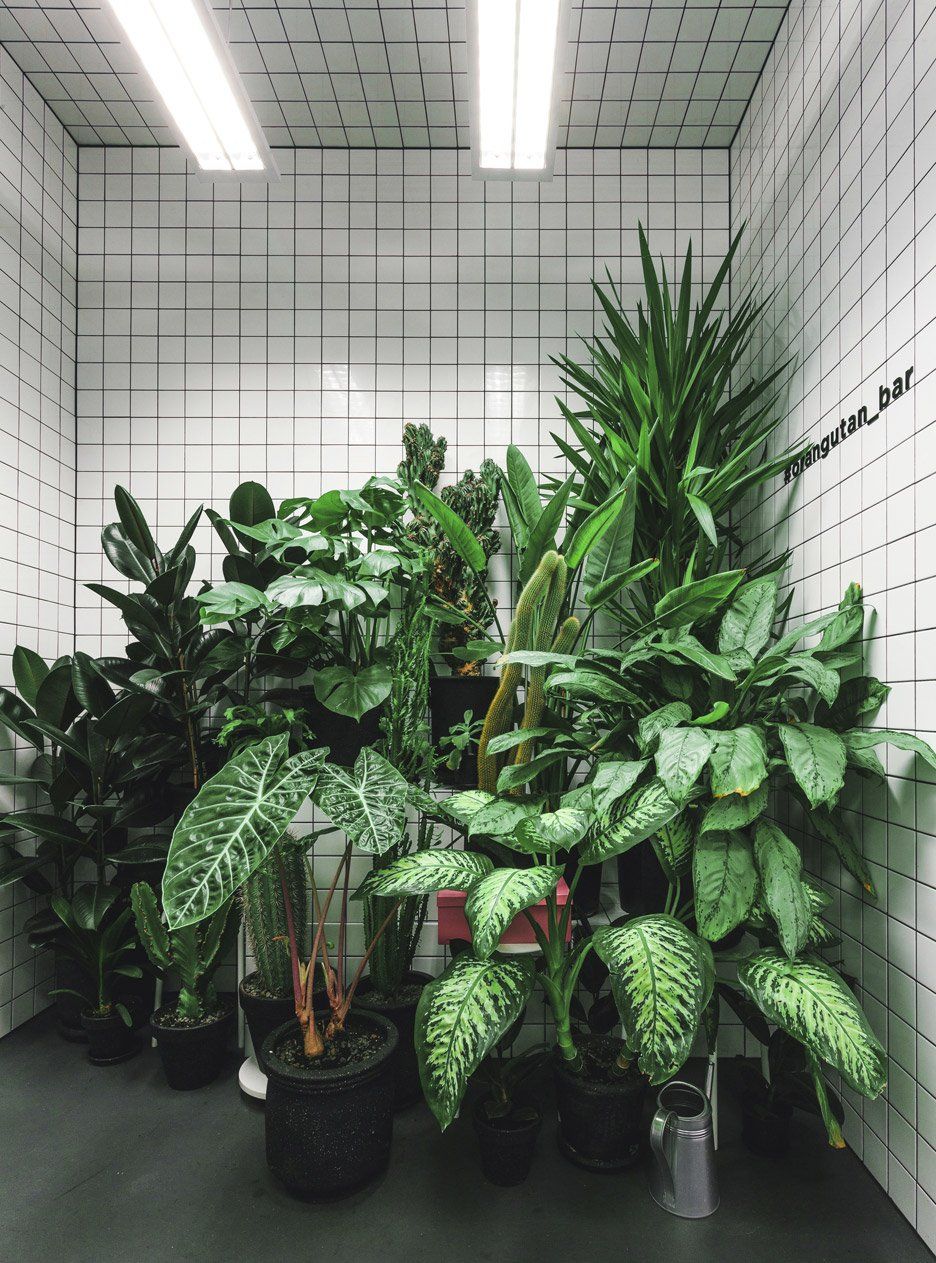
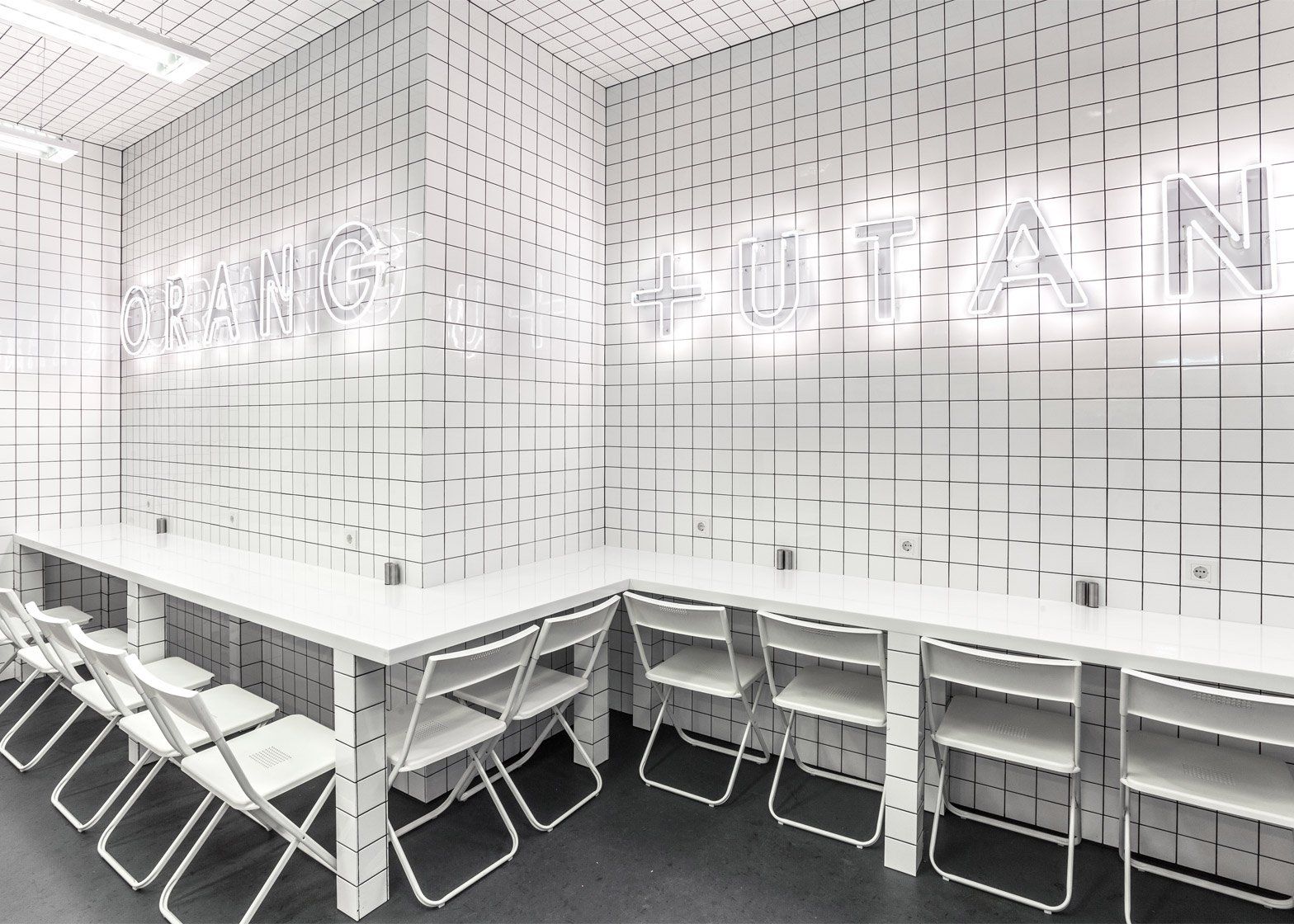
YOD Group | Web | Facebook | Instagram
Sivak & Partners | Web | Facebook | Instagram
AKZ Architectura | Web | Facebook | Instagram
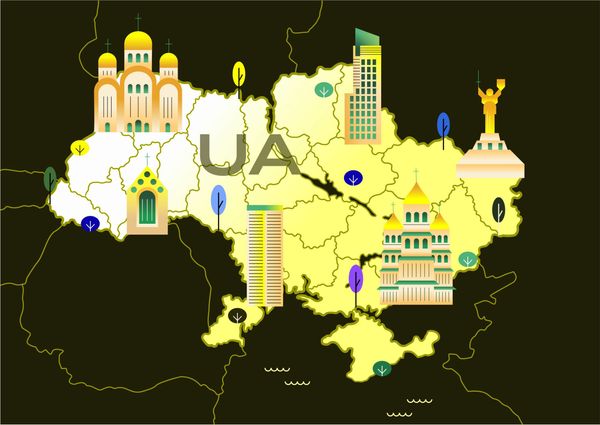
Struggling Ukraine | The transition to democracy in our region – Part IV.
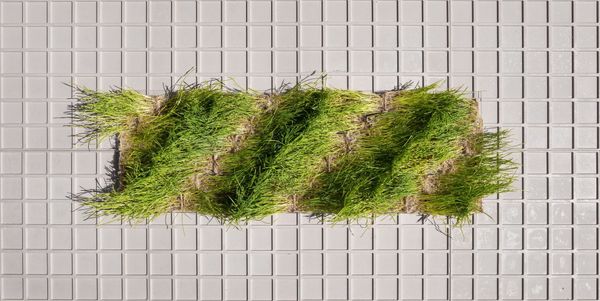
The designer who uses wheatgrass instead of yarn to weave | Anett Papp’s NATURING objects
